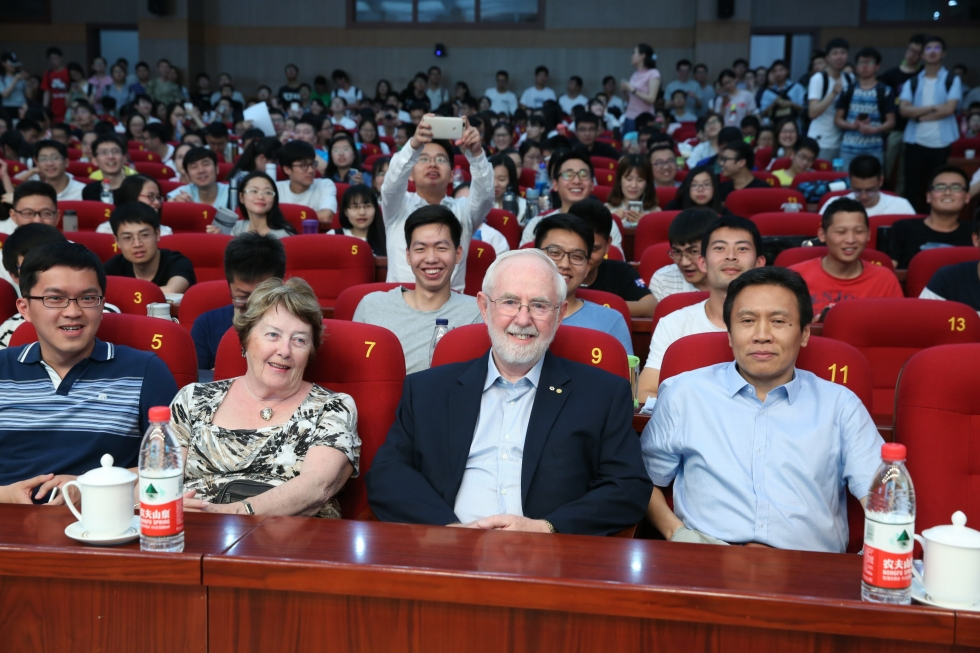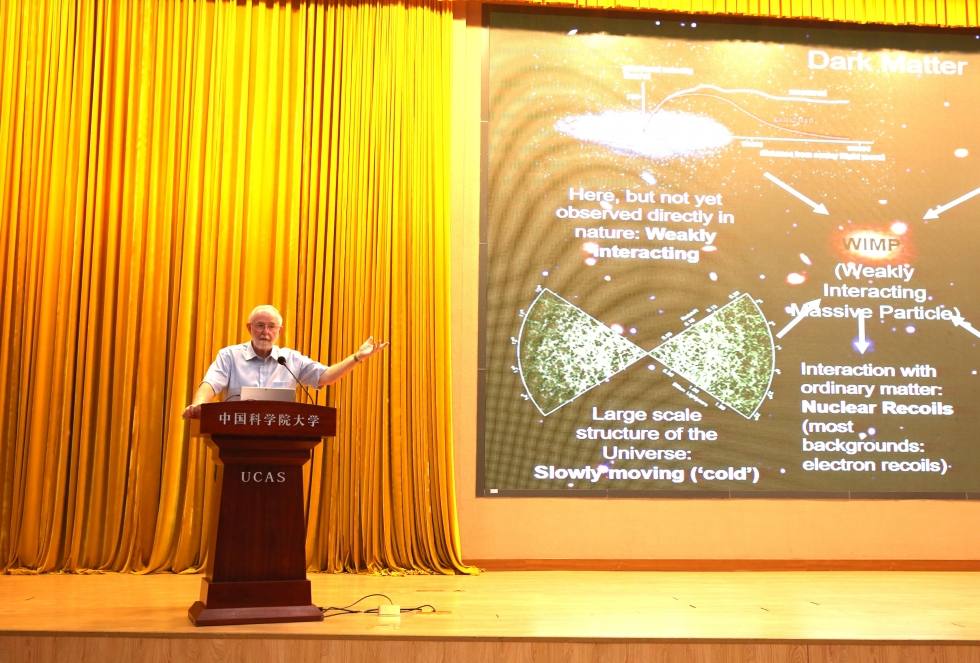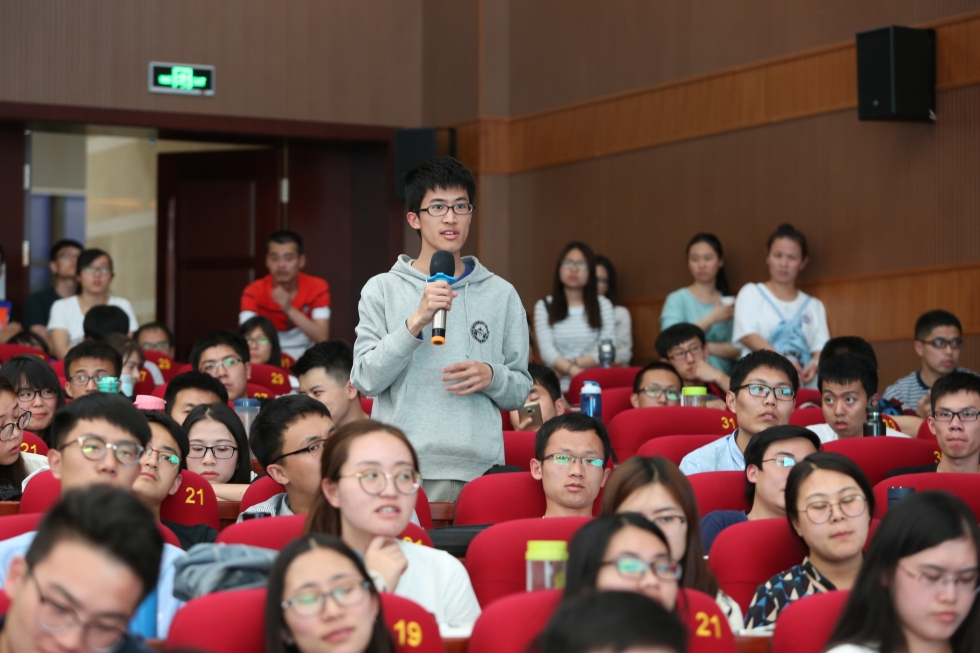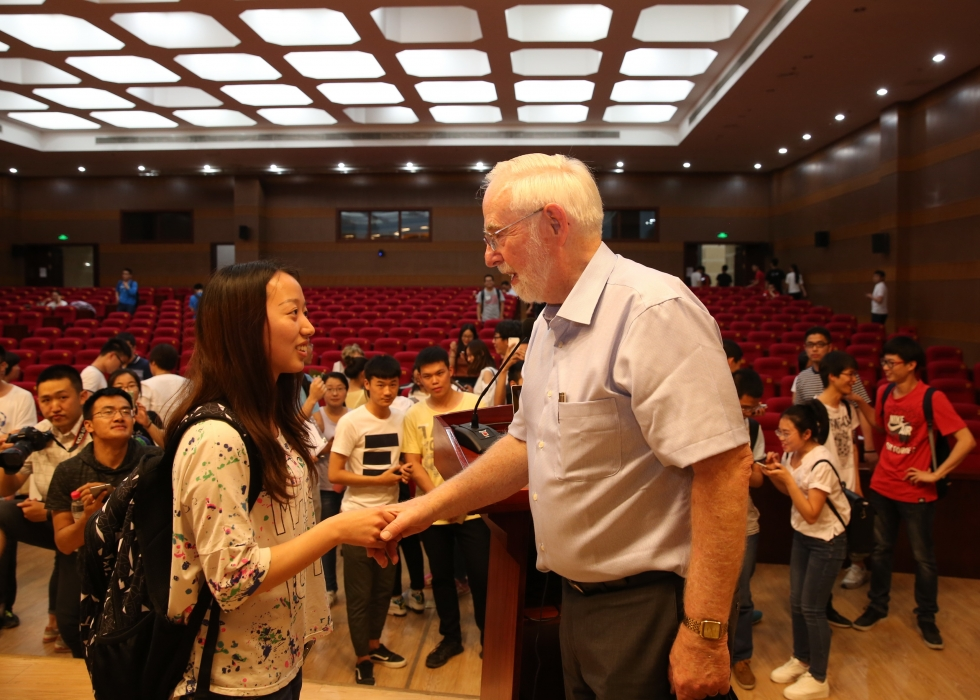At 6:30 pm, May 16th, Canadian physicist Arthur B. McDonald, who received the Nobel Prize for Physics in 2015, visited UCAS Yanqihu campus and delivered a lecture to students. In the lecture, Dr. McDonald talked about the current state of neutrino physics research, reviewed important scientific discoveries made by the Sudbury Neutrino Observatory (SNO) international cooperation division and looked forward to the future progress of those discoveries. This lecture was also the first session of the High-end Academic Forum known as the Masters of Physics Forum held by School of Physical Sciences, UCAS.
Dr. McDonald and his wife
Born in Sydney, Canada in 1943, Arthur B. McDonald received his doctorate at the California Institute of Technology, US. He is the director of the Sudbury Neutrino Observatory Institute and holds the Gordon and Patricia Gray Chair in Particle Astrophysics and now is the honorary professor at Queen’s University. He was awarded the 2015 Nobel Prize in Physics jointly with Japanese physicist Takaaki Kajita and the 2016 Breakthrough Prize in Fundamental Physics for his discovery of neutrino oscillations. Their findings proved that neutrinos have mass, solving the neutrino puzzle that had perplexed physicists for decades while at the same time opening a new chapter for particle physics research.
For many years, neutrinos have been the focus of study for many physicists. At the beginning of the lecture, Dr. McDonald reviewed some discoveries on neutrinos.
He mentioned problems to be resolved in current neutrino research, such as Neutrino mass hierarchy, Majorana neutrinos, absolute mass of neutrinos and CP violation. The Nobel laureate then introduced future developments of SNO experiments, and expounded on dark matter detention.
At the end of the lecture, a student named Wang Chenchen asked Dr. McDonald, “As a master of science who has won the Nobel Prize, do you have any suggestions for the younger generation engaging in scientific research?” Dr. McDonald responded, “First, science is fun. It’s really an enjoyable thing to do. You go to the laboratory in the morning but never know what you will learn during the whole day’s study. In this regard, science is fun. What’s more, you can work with your colleagues in the lab. The most wonderful thing is someone pays you for doing what you love to do.” Dr. McDonald encouraged physics students and students in other disciplines and majors to value their courses because they are as important as experimental work in labs. Only those who master basic knowledge can do experiments well. “Make full use of your time as a student”, he said, “Try to utilize this period of time to learn as much professional knowledge as possible.”
After the lecture, students from the School of Physical Sciences presented flowers to Dr. McDonald, but he gave them to his wife and said, “In any scientific undertaking, team work is highly important for science team. But for me, it is also important to my 50 years’ marriage. My wife and I celebrated our 50th wedding anniversary last year, and now we have 4 children, 8 grandchildren. I think this bunch of flowers can symbolize our team work!” The audience didn’t expect that this Nobel winner would give such a warm and touching surprise to them, but for his public display of affection, the students expressed that they’d love to see that.
Chen Yubi, a Junior from the School of Physical Sciences, talked with Dr. McDonald.







